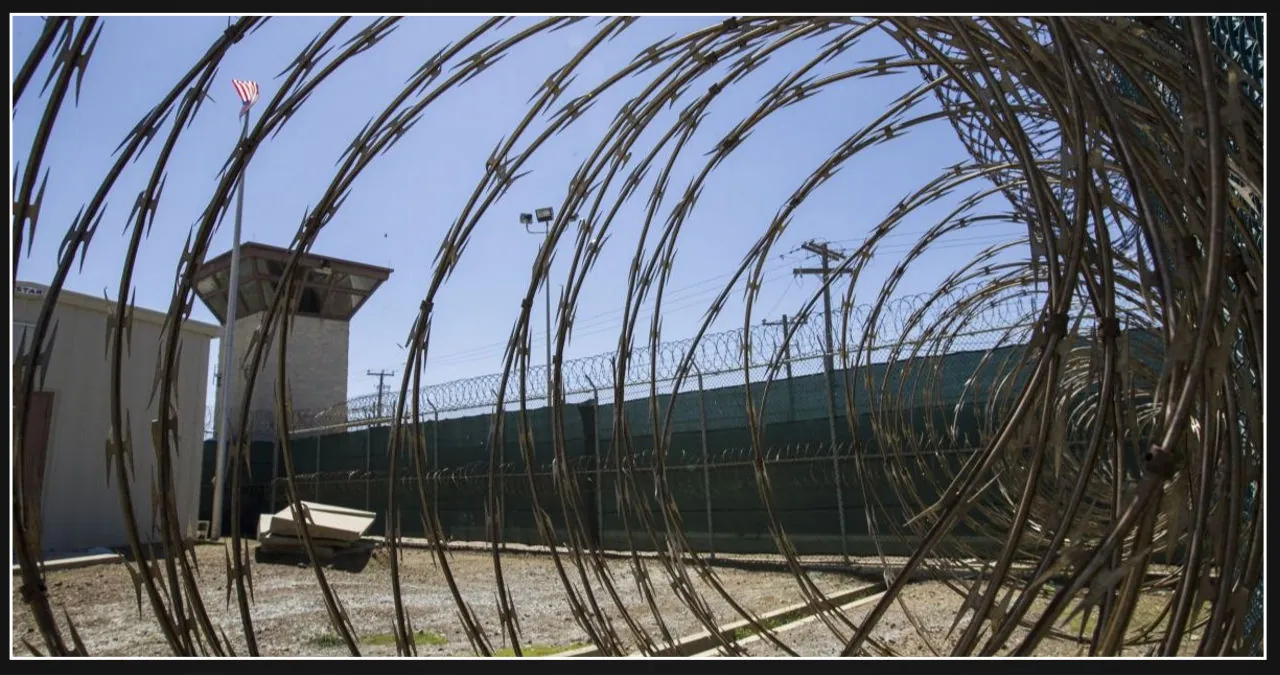A federal court has halted the Trump administration’s plan to move three Venezuelan men from an immigration detention center in New Mexico to Guantánamo Bay Naval Base in Cuba, as reported by the immigrants’ lawyer.
Why It Matters
This Article Includes
President Donald Trump recently revealed his intentions to detain roughly 30,000 immigrants who are believed to be residing in the United States unlawfully at Guantánamo Bay. This announcement comes as part of his ongoing efforts to address immigration issues within the country.
The military prison at Guantanamo Bay gained widespread recognition following the terrorist attacks on September 11, 2001.
What To Know
The nonprofit legal group, the Center for Constitutional Rights, has filed a request with a federal district court on Sunday for a temporary restraining order. The aim is to prevent the Trump administration from transferring the men to Guantánamo, as stated in their official statement.
According to a statement, the men are currently held in New Mexico and are facing an unlawfully prolonged detention. They have a pending case before the court to challenge this situation. The statement also expresses concern that they are at risk of being transferred to the island prison in the near future.
According to the filing, the men are currently being held at the Otero County Processing Center, which is the same ICE facility where other detainees recently transferred to Guantánamo had reportedly been held. The filing also mentions that the men were able to recognize some of the detainees from government photos that were released to the media.
Guantanamo Bay is situated on the southeastern coast of Cuba. Since 1903, the United States has leased the land from Cuba under an agreement that Cuba disputes. The presence of the U.S. in Guantanamo Bay has always been a point of contention for the Cuban government, and they have expressed their disapproval of Trump’s new policy.
What People Are Saying
According to Baher Azmy, attorney for the men, he expressed his thoughts on X, formerly known as Twitter, stating that the ruling represents a significant victory for his clients who would have otherwise been trapped in a never-ending legal quagmire.
President Donald Trump, in a statement on January 29, expressed his intention to utilize the 30,000 beds in Guantanamo to detain the most dangerous criminal illegal aliens who pose a threat to the American people. He highlighted the severity of these individuals, emphasizing that their transgressions are so grave that the countries they originated from cannot be trusted to hold them. To prevent their return, President Trump proposed sending them to Guantanamo.
Secretary of Defense Pete Hegseth, addressing reporters, suggested that Guantanamo Bay could serve as an ideal location for housing migrants who are leaving the country through unconventional means, as well as hardened criminals. He emphasized the need for a suitable place to detain individuals like Tren de Aragua before initiating their return process, and proposed the utilization of the maximum security prison facilities available at Guantanamo Bay, considering the ample space it offers.
Eleanor Acer, the senior director for Refugee Protection at Human Rights First, strongly emphasized that sending individuals to Guantánamo Bay for immigration detention, indefinite detention, or any supposed “immigration enforcement” motive would be a grave error with significant legal, moral, and strategic implications.
“Gitmo tarnishes our nation’s reputation and must be permanently closed, rather than expanded to house thousands of immigrants. It is unacceptable to transfer individuals within the United States to a legal abyss known for its abysmal conditions and lack of oversight over legal, familial, and human rights. Constructing and operating a sprawling detention facility would not only violate human rights but also squander government resources and divert military assets.”
What Happens Next
Immigration advocates and civil rights organizations, such as the Center for Constitutional Rights, are expected to persist in their legal endeavors to prevent migrants from being transferred to Guantánamo Bay.

